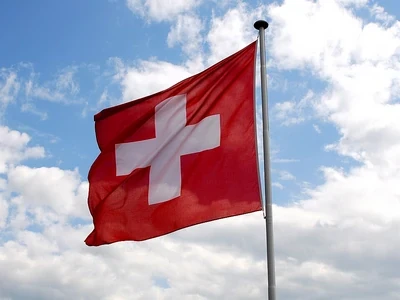Recently, I’ve had conversations with people here in Switzerland who, like me, admire the teachings of Prem Rawat — a man who speaks tirelessly about peace, about seeing beyond the noise of the world, about recognising the illusions (maya) that keep us from knowing ourselves.
And yet, in these same conversations, I’ve heard support for ideas like “10 million people is enough for here” — a slogan used to push anti-immigration and anti-asylum policies. I’ve also heard someone who worked for RUAG, Switzerland’s state-owned arms company, for over a decade explain that it was fine because “Switzerland is a defensive military.”
To me, these positions seem at odds with the essence of what Prem Rawat teaches.
The Comfort of Familiar Narratives
We humans cling to stories that make us feel secure. They tell us who we are, who the “others” are, and why the lines we draw between us make sense.
Borders, national identity, and military postures are part of those stories. They can feel practical, even moral. But if we look closer, we see they are made of the same stuff as any other illusion: belief held in place by repetition, comfort, and fear of what might happen if we let it go.
The Illusion of Countries and Peoples
Prem Rawat often points out that many things we take for granted are illusions. Countries are a perfect example.
Borders shift over time. Languages and cultures blend and change. Yet we defend these human-made divisions as though they were natural and eternal truths. We even define ourselves by them: “I am Swiss,” “I am French,” “I am Indian.”
The reality? Before the label, we were simply human. That hasn’t changed.
Defensive Militaries, Neutrality, and the Double Illusion
In Switzerland, the story is that we have a defensive military and are neutral. These sound noble, but in practice they are riddled with contradictions.
A defensive military still trains for war. And the weapons industry here — from small arms to high-tech systems — doesn’t just equip Swiss soldiers. “Defensive” is a label that soothes the conscience while ignoring where our exports end up.
And neutrality? Officially, it means not taking sides in conflicts. In practice, it has often meant something closer to, “We’ll take anyone’s money.”
From banking secrecy used by dictators, to trade with regimes on both sides of a conflict, neutrality has sometimes served more as a commercial strategy than a moral one. We cling to the label because it makes us feel righteous, even when the reality is far more complicated.
Why Illusions are Hard to Give Up
Illusions like these are comforting because they allow us to feel safe without having to confront our own fears and contradictions. If the border is strong, the military is defensive, and our country is neutral, then everything is under control — or so the story goes.
But Prem Rawat reminds us: the real battle is inside. The world’s problems will not be solved by stronger walls or cleverer labels, but by individuals who are willing to see clearly and live with compassion.
Seeing Beyond the Stories
When we step back from these inherited narratives, something shifts. Without the armour of nationality, we see other human beings as… just that: human beings.
Without the illusion of neutrality, we are forced to ask harder questions about what we participate in and why. Without the excuse of “defensive,” we have to face whether we truly want peace — or whether we are just preparing for the next war.
An Invitation
I am not here to tell anyone what to think about immigration, the military, or neutrality. But I am inviting you — as Prem Rawat invites all of us — to notice the illusions you carry and ask: Are they helping me live as a human first?
Because in the end, the only “border” that matters is between knowing and not knowing yourself. And the only “defence” worth keeping is the one that protects your heart from closing.


Comments powered by CComment